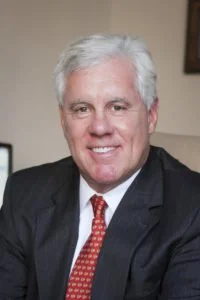Practical Physician Time Management Advice
New Physicians and Time Management
Physicians moving from residency or fellowship into their first position are dealing with a lot of adjustments - a new organization, new responsibilities, organizational politics, research responsibilities, taking care of patients, teaching, mentoring, serving on committees, learning new policies and procedures, and getting acquainted with the business of medicine.
This is in addition to the complexities of having a life outside of work, frequently in a new town. Many have gotten to this point in their career without much thought about how they manage their time. Their training drove the schedule. New demands tend to reveal the downside of this gap – quickly.
We are facilitating a session on time management, as part of Yale Medicine’s Pathfinder Program for new faculty – a 12 month program designed to give physicians the foundation for a successful and rewarding career.
(See our recent blog about a better approach to ensuring physician success.)
The curriculum content is driven by the needs of the participants. Time management was on the top of the list of priorities. An upcoming session will cover useful tools and strategies.
Practical Strategies You May Not Have Considered
Ron Vender, M.D., Associate Dean of Clinical Affairs at the Yale School of Medicine, is the executive sponsor of the Pathfinder Program.
In preparing for this session, we talked about what he’s learned over his career about time management. He mentioned three concepts that are not, generally, on the list of common recommendations – but they make perfect sense:
Listen to patients – Spending a few more minutes with your patients, and developing your listening skills, ends up saving you time in the long run.
Ronald Vender, MD, Associate Dean of Clinical Affairs, Yale Medicine
Build relationships. You can get things done more efficiently when you have trusting and collaborative relationships with colleagues, staff and administrators. Often, issues are resolved passing in the hall, rather than scheduling an hour long meeting!
Use free time effectively – The demands on physicians make free time an important commodity. Value it. Protect it. Use it wisely. Where possible SCHEDULE small blocks of free time. Use these blocks to work on tasks that, perhaps, required more time than you anticipated, or that have become a sudden priority.
Better yet, use this time to think and plan, or spend a few minutes on a project or initiative that you’ve not been able to get to. And whenever possible, use that free time for yourself or your family. That investment will help you to protect your emotional energy and be even MORE productive when it’s time to work!
Listen to patients – Spending a few more minutes with your patients, and developing your listening skills, ends up saving you time in the long run.
Build relationships. You can get things done more efficiently when you have trusting and collaborative relationships with colleagues, staff and administrators. Often, issues are resolved passing in the hall, rather than scheduling an hour long meeting!
Use free time effectively – The demands on physicians make free time an important commodity. Value it. Protect it. Use it wisely. Where possible SCHEDULE small blocks of free time. Use these blocks to work on tasks that, perhaps, required more time than you anticipated, or that have become a sudden priority.
Better yet, use this time to think and plan, or spend a few minutes on a project or initiative that you’ve not been able to get to. And whenever possible, use that free time for yourself or your family. That investment will help you to protect your emotional energy and be even MORE productive when it’s time to work!
Keep an eye out for more information about Yale Medicine's unique Pathfinder Program for new faculty!

